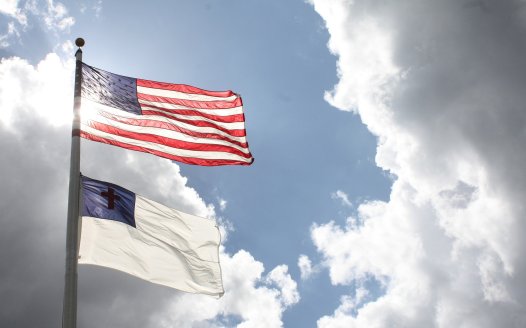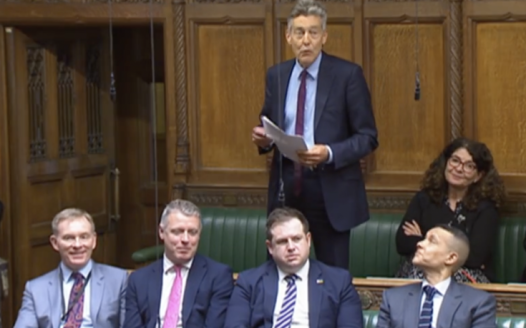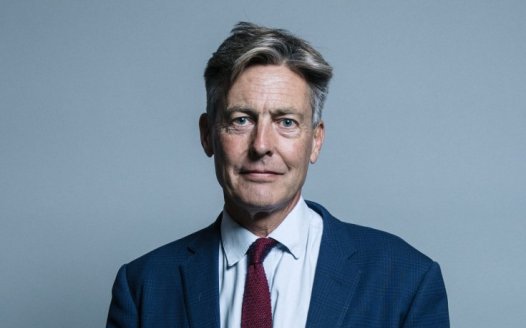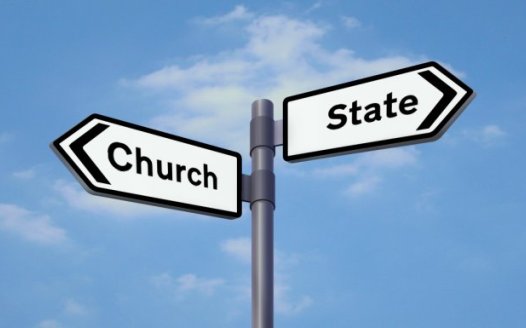Parliament’s rift with the Church shows the need to separate religion and state
Posted: Thu, 23rd Mar 2023 by Keith Porteous Wood
MPs dismayed over the Church of England's position on homosexuality are pushing for legislation to permit the Church to marry same sex couples. This throws the traditional arrangement between church and state into serious question, says Keith Porteous Wood.
Almost unnoticed, the closest we have ever come during my decades with the National Secular Society to a skirmish between the House of Commons and the Church of England came on 21 March over the Same Sex Marriage (Church of England) Bill. If passed it would enable the solemnisation of marriages of same sex couples by the Church, but only by clergy who wished to carry them out.
On one level the fight was over nothing; it was a ten minute rule debate, allowing the proponent to make their case for ten minutes and an opponent – in this case the Church – ten minutes to oppose it. Such bills rarely become law.
But this one just might, given that the Commons at least is losing patience with the Church over what it sees as its continued discrimination against same sex couples by refusing to marry them.
After spending decades kicking the proverbial can down the road avoiding a decision for decades, the latest Synod decided 60% to 40% against permitting same sex marriage. It opted instead to reaffirm traditional opposite sex marriage but allow couples in a same sex marriage to be blessed (but not the union itself). The decision has angered both same sex marriage opponents and proponents, including the House of Commons.
The support for this bill, symbolic or not, was as impressive as it gets: the maximum allowed number of sponsors from across the House including the longest-serving female and male members. And seemingly many more would have sponsored it if had they been able.
Parliament set precedents for influencing the Church in this way when first women priests, then women bishops, were introduced. In both cases Synod relented before long, surely realising the alternative (such as it is facing now) would be far more damaging.
However, it is not a case of Parliament needing to be patient while the Church gets its house in order as it had been with women priests and bishops. There is no realistic prospect of the Church changing its mind on same sex marriage anytime soon, as this would need a two thirds majority in Synod, including two thirds of the bishops. This time only one out of 41 voted in favour.
The response from the Church's representative Andrew Selous showed the Church is taking the bill seriously and sought to throw everything but the kitchen sink at Parliament. You could almost hear the barrel of arguments being scraped. He opined that the bill "seeks to usurp the role of the democratically elected General Synod of the Church of England, as well as to remove the freedom of the Church of England to decide its own doctrine, a freedom that members from all parts of this House champion for religions and beliefs all over the world and one that we should therefore apply equally to the Church of England."
In so doing he equated the democracy of the Synod of his Church, whose regular Sunday attenders do not even reach one per cent of the English population, to democracy electing members of Parliament. He implied that the Church could determine any doctrine, presumably even when thought abhorrent by Parliament; that the Church's established status brings with it no responsibility to reflect the country's perspectives. I do not accept his claim that that this legislation impinges on religious freedom; it is permissive so no clergy are compelled to do anything they do not wish to do.
It comes to something when Peter Bottomley, Father of the House, told the Church representative in a recent debate that "this House will not put up with being held up by one third of one part of the General Synod … [and that] the enabling Act of 1919, which established a General Synod can be amended".
Is it not incredible that so many of the great and the good lent their support to this bill which opposes current doctrine but even more significantly rips up the convention of nearly fifty years that Parliament leaves the Church to initiate legislation involving itself? This is Parliament saying, "if you can't get this right, we will do it for you".
The Church should take note, but it seems incapable of doing so. A reportedly "tearful" Archbishop of Canterbury was intransigent, telling Synod last month that "MPs should not influence church on same-sex marriage" and that "he will ignore threats of parliamentary intervention to force the Church of England to allow same-sex couples to marry in church."
Dr Welby is of course at liberty to ignore "threats of parliamentary intervention", whether or not doing so is in the interests of the organisation he leads. But ignoring threats does not make them go away. Parliament is the ultimate power over these issues, as he may yet be compelled to accept, unless he opts for disestablishment. Then Parliament should and would withdraw any intervention and the CofE would be as free as any other church to do as it wishes within the confines of the law.
Image by Bhakti Kulmala from Pixabay
Separate Church and State
We want to separate church and state so no religion has undue influence over our politics and society. Join our campaign to disestablish the Church of England.









